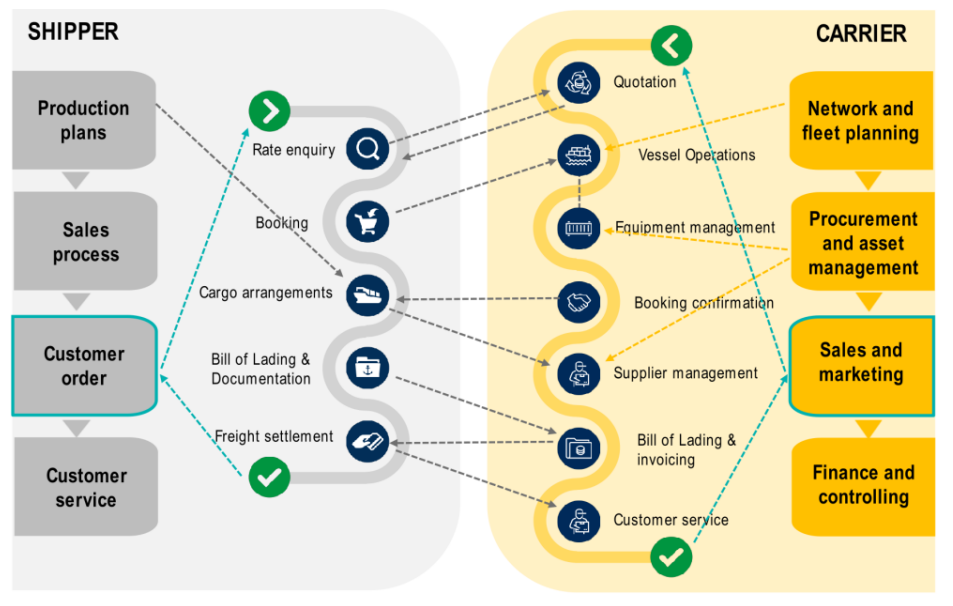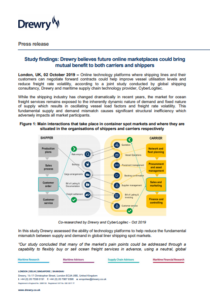Drewry in cooperation with CyberLogitec launched a white paper stating that online platforms that enable shipping lines and their customers to communicate better, could enhance vessel utilisation vessels and decrease freight rate volatility.
Specifically, Philippe Salles, Head of e-Business, Transport and Supply Chain at Drewry Supply Chain Advisors reported that their survey resulted to the fact that the markets cons could be addressed through a capability to flexibly buy or sell ocean freight services in advance, using a neutral, global platform.
Moreover, the visualisation of volume commitments and capacity would boost the demand of the market, and reduce the supply-demand mismatch and rate volatility, to the benefit of all market participants.
Despite the industry’s development, the market ocean for freight services is still based on the supply demand, which results in oscillating vessel load factors and freight rate volatility.

Studying technical platforms that assist the market, the study resulted to:
# Shipping Lines:
- Forward selling of vessel slots, underpinned by volume commitments, would put them in a stronger position to forecast their revenues and reduce their cost of capital.
- The early visualisation of demand could also be linked to collaborative, dynamic capacity management and increase vessel load factors.
- The reduced freight rate volatility would assist in stabilising vessel P&L’s and improve invoice accuracy.
- The ability to ‘sell forward’ will provide an effective hedge against freight rate decreases.
# Shippers and Forwaders
- Reduction in freight rate volatility and the ability to ‘buy forward’ would protect their product margins and provide an effective hedge against freight rate increases. Together with space guarantees, enforced through a deposit scheme and vendor reliability scores, this would result in more stable and elevated service levels of their ocean providers that enable reduction of safety stock levels.
# IT Providers
- A platform which provides these forward negotiation capabilities would be the starting point to also provide the ensuing requirements involving electronic booking, documentation, freight settlement and cargo visibility. The combination of the above features could balance the existing challenges in the freight market, such as uncertain booking or cargo statuses or even unreliable contracts.
Concluding, as Chris Na, VP and Head of Platform Division at CyberLogitec added
With a clear understanding of the origin and mechanics of the problem we believe we are well placed to develop innovative and robust solutions that can benefit all market participants.
For more information click on the PDF herebelow































































